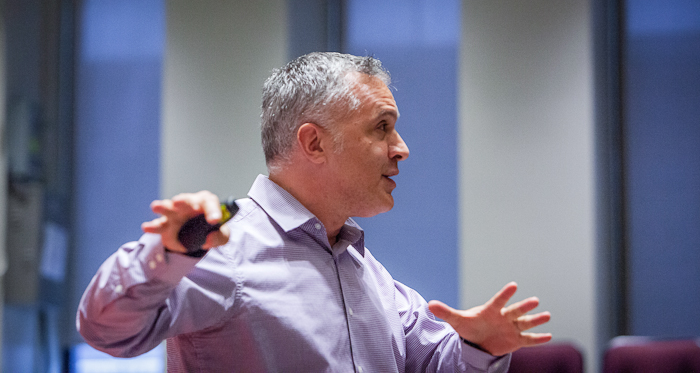A renowned expert in intellectual property, Professor Richard Gold recently commented in Fortune magazine on how COVID-19 has changed the face of drug development. He spoke with us on open science and intellectual property during the COVID-19 pandemic and beyond.
What is open science? Why is it worth pursuing?
Open science has, unfortunately, no one meaning. At a minimum, it means that all scientific outputs – articles, data, tools and materials – are available to everyone free (or at most at cost) to everyone. The exceptions to this rule would be: 1) data that reveals private information about patients; and 2) materials that are limited in quantity, in which case some priority system needs to be established.
As good as this minimal version is, it ignores a critical aspect of openness: the ability to work together in collaborations and build on each other’s knowledge. This insight leads to a more specific definition of open science as collaborations, usually crossing sectors (academic, industrial, government, patients) that aims to develop some set out of outcomes, be they treatments for a certain disease, pandemic readiness, etc.
Open science in both the minimal and more specific versions are critical to addressing two central problems of drug discovery: 1) exponentially increasing costs; and 2) decreasing rates of productivity. Putting these together, we are spending more to get ever less. At some point, we will no longer spend and we will get a lot less. We already see signs of this in the risk-adverse nature of both academic and industrial research, the increased costs of drugs to consumers, the proliferation of me-too drugs over breakthrough drugs, etc.
Open science both reduces costs – by simplifying arrangements between partners, speeding up research start-up, avoidance of duplication, re-use of data, materials and tools – and increases productivity by better supporting the exchange of knowledge among a more diverse set of actors. Studies have shown that diversity increases the chance of a breakthrough.
Why is open science the exception – and not the rule – even in situations of crisis?
It is the exception because we are wed to the old ways, are unwilling to challenge myths and are risk-adverse. Our peer-review system and metrics for academic success favour low-risk, small increases in knowledge rather than high-risk research that may fail. Universities and granting agencies adopt promotion, tenure and grant award criteria that emphasize feasibility, cutting off risk, impact factors and patented at the expense of risk-taking, following an unorthodox idea, etc.
The current system served us well before and we had good reason to follow it. Now that it is out of date, people are afraid to experiment. They cite examples where the current system produced a positive result forgetting that the same system prevented other, but unidentifiable, ideas from going forward.
What can we learn from open science models during the COVID-19 pandemic?
One of the first things that scientists, governments and firms did in the wake of the COVID-19 pandemic was to share and work together in an open science way. They realized that the only way to attack the SARS-CoV-2 virus quickly and efficiently was to work together. That is, they knew instinctively that the system they had been using is neither effective nor efficient. We need to build on that insight and make open science a part – not the only part but a significant part – of our drug discovery system.
When you imagine IP policy in a post-COVID-19 world, are you generally optimistic or pessimistic?
I am always optimistic. Some scientists and institutions had already embraced open science before the pandemic. Under Guy Rouleau’s leadership, the Montreal Neurological Institute and Hospital adopted an open science mandate three years ago. The Structural Genomics Consortium in Toronto, which funds some activity at McGill, was the global leader in open science. Governments, scientists, patients and firms are excited about learning more about and engaging in open science. This is the time to build on that enthusiasm and the world’s recognition that we can and must do things differently. It is time for open science.
Professor Richard Gold is a James McGill Professor at the Faculty of Law, where he teaches and does research in the area of intellectual property, international intellectual property, comparative intellectual property, innovation policy and intellectual property management.
Interview: Sarah Huzarski.
Photo: Nicolas Morin.

